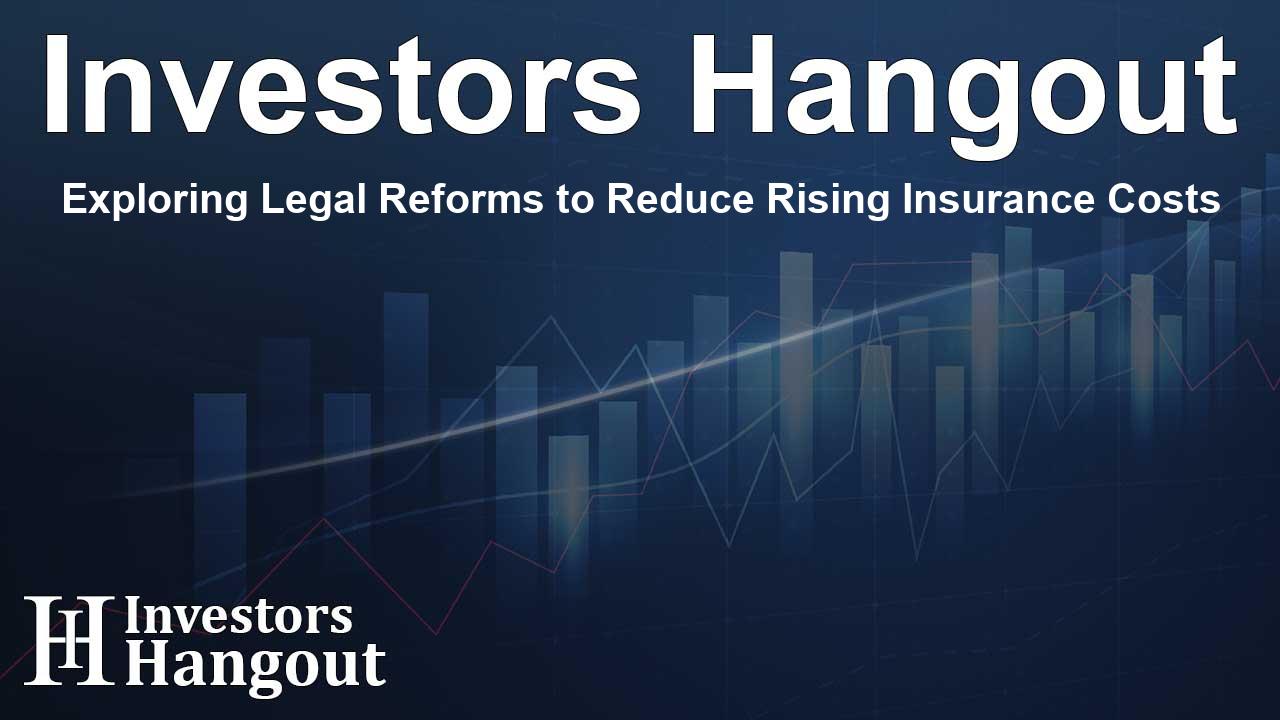Exploring Legal Reforms to Reduce Rising Insurance Costs

Understanding the Impact of Legal System Abuse
In today's society, the costs of doing business, owning a home, and driving are on the rise, and it's not just inflation that's to blame. The increasing misuse of the legal system, driven by aggressive attorney advertising and frivolous lawsuits, has created a problematic litigious culture. This trend significantly burdens consumers and businesses alike, resulting in increased costs that affect everyday life.
The Need for Legislative Action
Legislators must act swiftly to address the issues stemming from misleading litigation advertising and other questionable tactics that threaten state economies. By implementing reforms, we can help curb costs for both consumers and businesses, ensuring that financial burdens are alleviated.
Financial Trends in Legal Advertising
Did you know that last year alone, plaintiff lawyers invested $2.4 billion on over 26 million local legal service ads? This figure represents a growth of more than 5% from the previous year. Such significant spending reflects a strategic approach to capture a larger share of cases, which in turn influences the overall costs associated with legal battles.
The Rise of Litigation Funding
Another troubling development is the rise in litigation funding, which has skyrocketed to $15.2 billion in the last year. This financial backing allows parties to pursue lawsuits without the immediate burden of legal fees. However, the consequences are steep, as these 'lawsuit lenders' often charge exorbitant interest rates, occasionally exceeding 200%. This unchecked growth in litigation not only inflates legal costs but also incurs economic risks.
Litigation Costs and Their Impact on Households
The ramifications of these legal trends extend deeply into everyday life. The U.S. economy is believed to incur an astounding $443 billion annually due to excessive litigation costs. This translates into what some might call a "lawsuit tax," adding approximately $3,600 to each household's annual expenses. Such a hefty price tag illustrates the widespread impact of legal system abuse.
The Economic and National Security Concerns
The absence of required disclosure in third-party litigation funding measures raises alarms about foreign influences in our legal system. This exposure not only jeopardizes our economic stability but also threatens national security, making it imperative to address these vulnerabilities through reform.
Addressing the Key Issues with Experts
Industry experts, such as Robert Hartwig and Lynne McChristian, stress the importance of mitigating the effects of third-party litigation funding and the pervasive abuse of the legal system. They educate the public on why businesses and households pay the price for these troubling practices. By raising awareness of necessary reforms, their efforts can lead to meaningful changes.
Robert P. Hartwig: A Leading Voice in Risk Management
Robert P. Hartwig, a prominent Clinical Associate Professor at the University of South Carolina, has dedicated his career to the fields of risk management, insurance, and finance. As the Director of the Center for Risk and Uncertainty Management, he provides invaluable insights into the repercussions of current legal practices on the insurance industry.
Lynne McChristian: Insights from Industry Experience
Lynne McChristian brings a wealth of experience to her role at the University of Illinois, focusing on risk management and insurance research. With over 16 years in corporate communications at USAA, she has a deep understanding of both risk management and insurance, emphasizing the importance of strategic communication in the field.
Frequently Asked Questions
What are the main reasons for rising insurance costs?
The rise in costs can be attributed to the misuse of the legal system, which creates a culture of litigation resulting in higher claims and premiums.
How does litigation funding affect legal costs?
Lawsuit funding often leads to increased financial pressures on parties involved, as funders may charge high interest rates, thus inflating overall legal costs.
Who is Robert P. Hartwig?
Robert P. Hartwig is a Clinical Associate Professor in Risk Management at the University of South Carolina, known for his expertise in insurance and risk management.
What is the role of Lynne McChristian in the insurance sector?
Lynne McChristian is the director of the Office of Risk Management and Insurance Research at the University of Illinois, with extensive experience in corporate insurance and communication.
Why are legal reforms necessary?
Legal reforms are essential to curb the rising costs associated with legal abuses and to ensure that both consumers and businesses are protected effectively.
About Investors Hangout
Investors Hangout is a leading online stock forum for financial discussion and learning, offering a wide range of free tools and resources. It draws in traders of all levels, who exchange market knowledge, investigate trading tactics, and keep an eye on industry developments in real time. Featuring financial articles, stock message boards, quotes, charts, company profiles, and live news updates. Through cooperative learning and a wealth of informational resources, it helps users from novices creating their first portfolios to experts honing their techniques. Join Investors Hangout today: https://investorshangout.com/
Disclaimer: The content of this article is solely for general informational purposes only; it does not represent legal, financial, or investment advice. Investors Hangout does not offer financial advice; the author is not a licensed financial advisor. Consult a qualified advisor before making any financial or investment decisions based on this article. The author's interpretation of publicly available data shapes the opinions presented here; as a result, they should not be taken as advice to purchase, sell, or hold any securities mentioned or any other investments. The author does not guarantee the accuracy, completeness, or timeliness of any material, providing it "as is." Information and market conditions may change; past performance is not indicative of future outcomes. If any of the material offered here is inaccurate, please contact us for corrections.